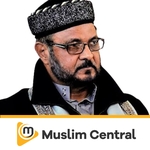Sadullah Khan – Developing a Qur’anic Personality To be and What not to be. #16

AI: Summary ©
The speaker discusses the importance of healthy health and leisure for one's life, as well as the responsibility of individuals to ensure their health is maintained and protected. The importance of taking precautions to protect one's health is emphasized, including answering questions about one's health, including whether they have completed their health education and use of their wealth.
AI: Summary ©
Developing a Quranic personality to be and what
not to be.
There are 2 blessings which many people are
most neglectful of.
Health
and leisure. Health
and leisure or free time.
Health is one of the blessings least appreciated
until, of course, it is lost.
Yet it is
fundamental. Fundamental to human existence.
In fact, in a hadith documented in Bukhari
again and by Imamatir Midi, Rasulullah said,
Whoever
wakes up in the morning, finds himself secure
in his home, in his community,
enjoying good
health,
and has sufficient sustenance for the day, it
is as if someone who has the whole
world
at his fingertips, in his grasp without realizing
it. So to optimally
maintain human life,
it's absolutely essential that the body and the
spirit harboring that life in that body ought
to be physiologically,
psychologically,
emotionally,
and spiritually healthy.
If there is what you call
one of
the sanctified rights that we have, if there's
sanctity to human human life, if there is
right to human life, then there is a
corresponding obligation on ourselves
to our own lives. Not only the lives
of others, but even of our own selves.
And it's a duty obligatory upon us to
preserve and maintain and possibly enhance
the quality and the health that we have
and the quality of our life.
Basis of this principle,
every Muslim has the responsibility
of making sure
of doing whatever is conducive
to the preservation of good health
for oneself and for those around, but it
begins with the self. And therefore the Rasool
salallahu alaihi wa sallam said in Hadith,
documented by Imam Muhammad Haqim in his moustadirak.
Rasoolullah said, value 5 things in life before
5 things will happen.
Value 5 things before 5 things happen.
Value your youth
before old age.
Before value your free time before you become
preoccupied.
Value your wealth, whatever you have, before you
may lose it. Value your health before illness,
and value your life before death.
Islam considers health to be one of the
greatest,
one of the greatest blessings of Allah Subhanahu
Wa Ta'ala that he gave to human beings.
Indeed,
it is considered even as the greatest blessing
after faith.
And this is evidenced by a hadith of
the Rasulullah
alaihi wasallam, documented by Imam Atirmidi, where the
Rasul said,
he's assigned priority priority to good health. Assigned
priority to good health. He said,
for forgiveness and for your sound well-being.
For forgiveness and for good health. No blessing
after faith is greater than good
health and well-being.
The sufis have a saying,
the human being sacrifices his health in order
to gain wealth.
Then,
he uses all his wealth and sacrifices his
wealth to regain and recuperate the health.
He's so heedless of the past
and so anxious about the future that he
does not appreciate the present.
He says,
You know? So he goes to the past,
so anxious about the future, he does not
really appreciate the present. The result being, he
does not live in the present nor in
the future.
He lives as if he's never going to
die, and then he dies
never really having lived.
So, let us take every precaution.
Let's take every precaution to safeguard our health.
It's an obligation upon us.
And to take care of our bodies.
To take care of our bodies.
Because Allah subhanahu wa ta'ala will ask us
about this in a hadith documented by Muhammad
Irmidi, and I leave you with this. Rasulullah
said,
No person will be allowed to move on
the day of Tiyama until they answer 4
questions. No person will move on the day
of Qiyamah unless they've answered 4 questions.
No person can move unless the answer about
their life in one hadith, about the youth
and how they spent it. Another one about
your life and how you passed
it. About your knowledge, how you benefited yourself
and others with it. About your wealth from
where you acquired it and what you did
with it, and your body,
how you used it or abused it.